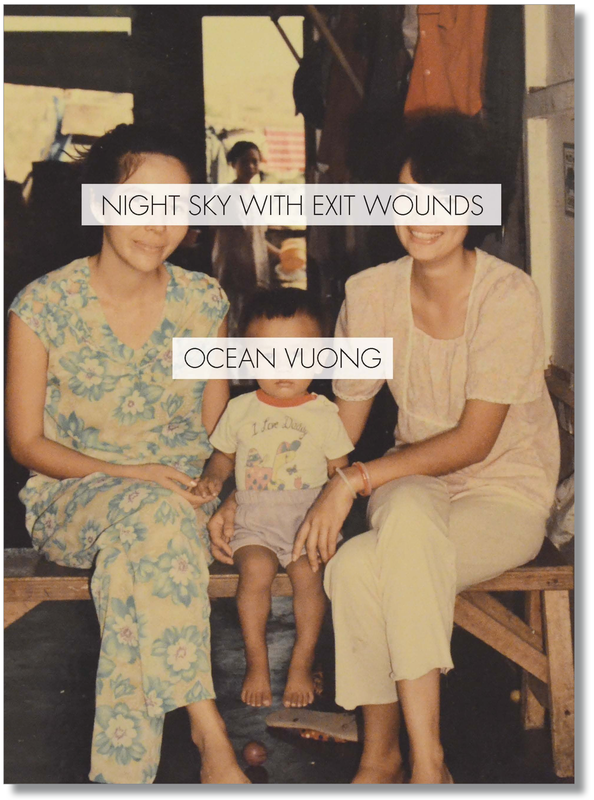

The father figure is broken, but it is his voice which bathes his son in music in ‘Threshold’: His voice - / it filled me to the core / like a skeleton. Odysseus is traumatised by war, in Night Sky. Like Walcott’s Omeros (another voyage into identity, grief and reconciliation of the self), he doesn’t just appropriate mythical Greek figures but defamiliarises them, allowing for other stories to take shape. Vuong has forged an epic out of his family’s intergenerational, intercontinental trauma. The collection grapples with what it is to be a product of such a melding, to write within these spaces. In an interview with Prac Crit, Vuong states that Night Sky is a very American book and that he writes through the spaces of American identity. Bloodsongs, verses cut and moulded from intergenerational violence, from war, Vietnam and America. Thus no bombs = no family = no me.įrom ‘Notebook Fragments’, as well as lines like:įrom ‘On Earth We’re Briefly Gorgeous’.


Ocean Vuong’s melodic insouciance defines the voice of the moment: this is a man who can write lines like:Īn American soldier fucked a Vietnamese farmgirl. My friends who own Night Sky with Exit Wounds caress the cover in awe, clutch it tightly to themselves before sharing the book with others, give it pride of place on their bedside table long after the collection has been read and reread. Night Sky with Exit Wounds b y Ocean Vuong - Alexandra d’Abbadie

Vuong exists as both observer and observed throughout the book as he explores deeply personal themes such as poverty, depression, queer sexuality, domestic abuse, and the various forms of violence inflicted on his family during the Vietnam War. In his impressive debut collection, Vuong, a 2014 Ruth Lilly fellow, writes beauty into-and culls from-individual, familial, and historical traumas.


 0 kommentar(er)
0 kommentar(er)
